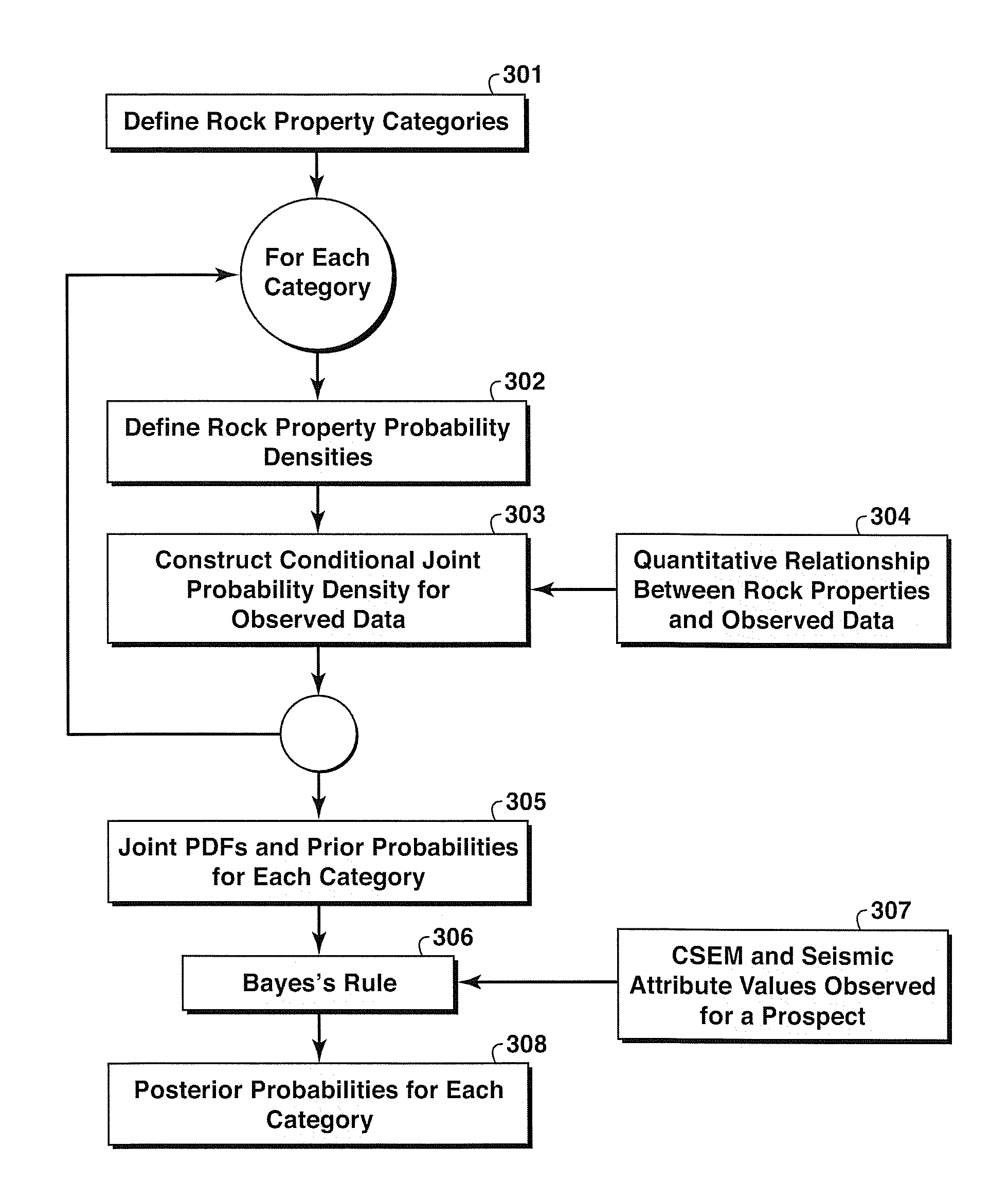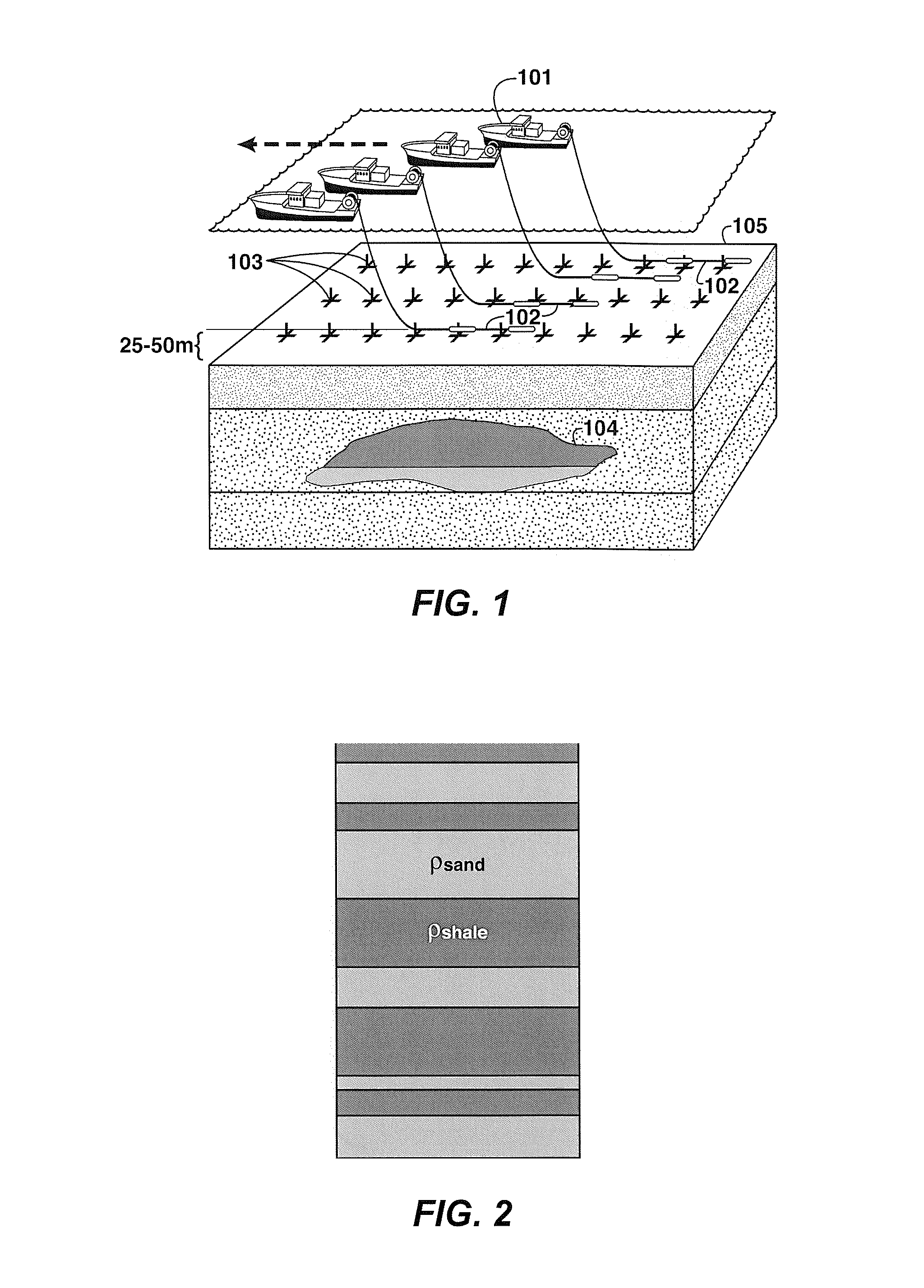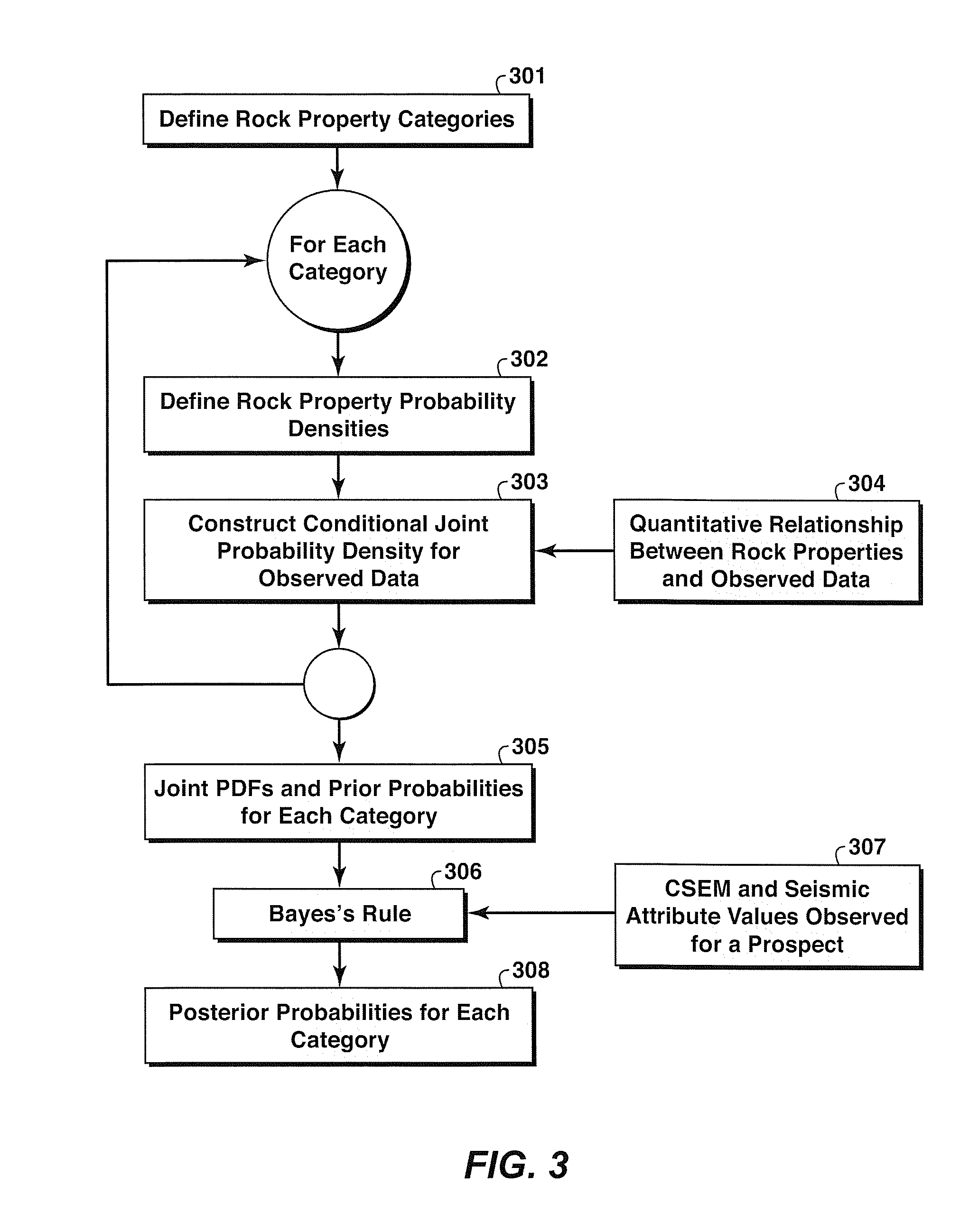Classifying potential hydrocarbon reservoirs using electromagnetic survey information
a technology of electromagnetic survey and hydrocarbon reservoir, applied in the field of electromagnetic survey, can solve the problems of inability csem methods are not usually able to unambiguously detect individual hydrocarbons, and the resistivity is affected by rock properties, and achieves a high resistivity value
- Summary
- Abstract
- Description
- Claims
- Application Information
AI Technical Summary
Benefits of technology
Problems solved by technology
Method used
Image
Examples
example
[0055]The following example illustrates the application of the invention to a resistivity anomaly in a modeled CSEM survey where seismic data are used to augment the CSEM data. (The invention is equally well suited for comparing two or more anomaly regions or other target regions from the same survey area.) FIG. 4 is a map of vertical resistivity (magnitude indicated by the gray scale) derived from anisotropic inversion of the modeled CSEM data set. The black lines in FIG. 4 are the transmitter towlines for the modeled survey and the gray spheres are the receiver locations. The input resistivity volume (not shown in the drawings) used to generate the synthetic CSEM data has three high-resistivity (150 Ω-m) layers inside the white polygon 41, embedded in a 12 Ω-m background. The highest inversion resistivity inside the high-resistivity region in FIG. 4 is 36.9 Ω-m, and the horizontal resistivity (not shown) at the same location is 5.1 Ω-m. The seismic interval velocity computed from ...
PUM
 Login to View More
Login to View More Abstract
Description
Claims
Application Information
 Login to View More
Login to View More - R&D
- Intellectual Property
- Life Sciences
- Materials
- Tech Scout
- Unparalleled Data Quality
- Higher Quality Content
- 60% Fewer Hallucinations
Browse by: Latest US Patents, China's latest patents, Technical Efficacy Thesaurus, Application Domain, Technology Topic, Popular Technical Reports.
© 2025 PatSnap. All rights reserved.Legal|Privacy policy|Modern Slavery Act Transparency Statement|Sitemap|About US| Contact US: help@patsnap.com



